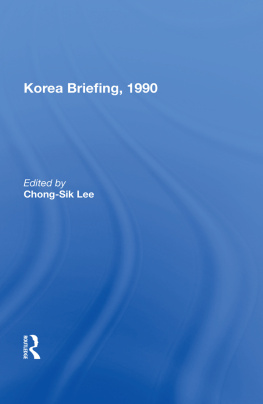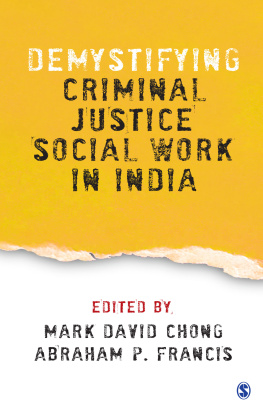A

BOOK
The Philip E. Lilienthal imprint
honors special books
in commemoration of a man whose work
at University of California Press from 1954 to 1979
was marked by dedication to young authors
and to high standards in the field of Asian Studies.
Friends, family, authors, and foundations have together
endowed the Lilienthal Fund, which enables UC Press
to publish under this imprint selected books
in a way that reflects the taste and judgment
of a great and beloved editor.
Admonitions on
Governing the People
The publisher gratefully acknowledges the generous support of the Philip E. Lilienthal Asian Studies Endowment Fund of the University of California Press Foundation, which was established by a major gift from Sally Lilienthal.

Admonitions on
Governing the People
Manual for All Administrators

Chng Yagyong
Translated by
Choi Byonghyon

University of California Press, one of the most distinguished university presses in the United States, enriches lives around the world by advancing scholarship in the humanities, social sciences, and natural sciences. Its activities are supported by the UC Press Foundation and by philanthropic contributions from individuals and institutions. For more information, visit www.ucpress.edu .
University of California Press
Berkeley and Los Angeles, California
University of California Press, Ltd.
London, England
2010 by The Regents of the University of California
Library of Congress Cataloging-in-Publication Data
Chong, Yag-yong, 17621836.
[Mongmin simso. English]
Admonitions on governing the people : manual for all administrators / Chong Yag-yong cho ; translated by Choi Byonghyon.
p. cm.
Includes bibliographical references and index.
ISBN 978-0-520-26091-7 (cloth : alk. paper)
1. Civil service ethicsKorea. 2. Local officials and employees KoreaConduct of life. I. Choi, Byonghyon, 1950 II. Title.
JS7394.A2C45733 2010
351dc22 2009037669
Manufactured in the United States of America
19 18 17 16 15 14 13 12 11 10
10 9 8 7 6 5 4 3 2 1
This book is printed on Cascades Enviro 100, a 100% postconsumer waste, recycled, de-inked fiber. FSC recycled certified and processed chlorine free. It is acid free, Ecologo certified, and manufactured by BioGas energy.
CONTENTS
NOTES ON TRANSLATION
The primary source text of the present translation is the Korean translation of Mongmin sims (Changjak kwa pipyng, 1978). It consists of six volumes and also contains the original classical Chinese in which the book was written. According to the preface, the Korean translation was a ten-year collaboration of fifteen scholars. I also consulted other Korean translations, as well as the original source text in the complete collection of Chng Yagyongs works, titled Yyudang chns.
The source text was too massive to be translated in its entirety; the copious information and historical facts were curtailed in order to provide the most relevant and meaningful English translation. Because of the works encyclopedic scope, many of the details are repeated or are too technical to be appreciated by modern readers. For instance, Saving the Victims of Natural Disasters (in ). The detailed descriptions of record keeping for revenue purposes or of preparing food and medicine during famines may be of interest to specialists or historians but not to general readers. For this reason, I was convinced that an abridged version of the English translation would be best.
Admonitions on Governing the People is written in a style called kangmok che, an exposition of main topics (written in italics in the present text) followed by explanations and illustrations. Although the endless examples and precedents usually support and reinforce the arguments, they can be rather distracting and contrary to their purpose simply because they are often too extensive and detailed. The source text that I used for my translation provides a number of notes, but I had to expand them significantly and add many more (printed here at the foot of the page or as brief interpolations in square brackets in the text) for Western readers.
Readers will also find that much evidence and many examples in the text are drawn from Chinese history, a cultural legacy inherited by Korean people through their education because of their historical relationship with the Chinese over the past millennia. In addition, readers may find similarities of names of people and of official titles, measures, and currency confusing. Most Korean and Chinese readers may be able to distinguish between Korean and Chinese names in the English translation (although this, too, may be difficult when they are written only in Chinese characters), but Western readers may find this extremely difficult.
To deal with this problem, I have provided a glossary, transcribing Korean and Chinese names using the McCune-Rheischauer Romanization system and Hanyu Pinyin, respectively. The abbreviation Ch. has been used in giving Chinese equivalents of terms in Korean. The problem of translating units of measure and currency is even more complicated. The exact computation of Korean and Chinese measures and currencies in Western standard measurements is awkward and therefore probably undesirable. It seemed better to translate Korean and Chinese measurements such as yang/liang or pil/pi as tael and bolt, respectively. However, it seemed inappropriate to translate 1 sng/sheng as 0.99 quart or 1 mu as 0.16 acre, so I decided to transliterate most of those measurements and currencies both in Korean and Chinese even though they are the same, providing footnotes and listing them in the glossary.
Another difficulty that I have encountered in this translation is the lack of references available in English translation, particularly major Korean legal codes and various official Chinese histories. I had no choice but to provide those references as far as I could, even though I knew that they would not be of much help for the general reader. Besides, even when those texts were available in English translation, I often found myself not quite comfortable with the translation itself. When that happened, I was compelled to use my own translation instead of the ones in the source text.

This translation is the fruit of seven years hard work. Although I have tried my best, I cannot escape the feeling that my work could have been done better. Nevertheless, this long road of translation has been very heartening because I found many supporters whose help and encouragement served as fuel along the way.
First of all, I would like thank the authorities of Korea Literature Translation Institute, including former directors Chin Hyung-joon and Yoon Jigwan and current director Kim Joo Youn, whose financial and moral support was indispensable for this project. I am also indebted to President Kim Yeongho of Ilshin Cultural Foundation and President Kim Jaecheol of Dongwon Education Foundation for their financial support.
Next page













